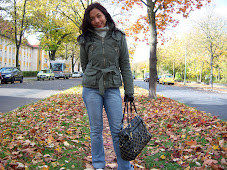Biography
Idha Widi Arsanti
Researcher in Agricultural Economic
Born: 14th of January, 1973
Birthplace:
Nationality: Indonesian
read more......
It is published regularly and contributions are accepted from any-one engaged in agricultural work in Indonesia and other countries in Tropical Archipelagic. Published since 2007.
Researcher in Agricultural Economic
Born: 14th of January, 1973
Birthplace:
Nationality: Indonesian
Posted by
Idha Widi Arsanti
at
11:56 PM
0
comments
![]()
Posted by
Idha Widi Arsanti
at
9:19 AM
0
comments
![]()
Abstract
Posted by
Idha Widi Arsanti
at
9:08 AM
0
comments
![]()
Abstract
Upland soils of
Posted by
Idha Widi Arsanti
at
9:08 AM
0
comments
![]()
Posted by
Idha Widi Arsanti
at
9:04 AM
0
comments
![]()
Posted by
Idha Widi Arsanti
at
9:02 AM
0
comments
![]()
Arsanti, I.W., Hartono, S. and Irham. 2003. Comparative and Competitive Advantages Analysis of Vegetables Crop Pattern in Serayu Upper Catchments Area, Wonosobo. Agrosaints vol. 16 (3) Journal.
Posted by
Idha Widi Arsanti
at
7:56 AM
0
comments
![]()


